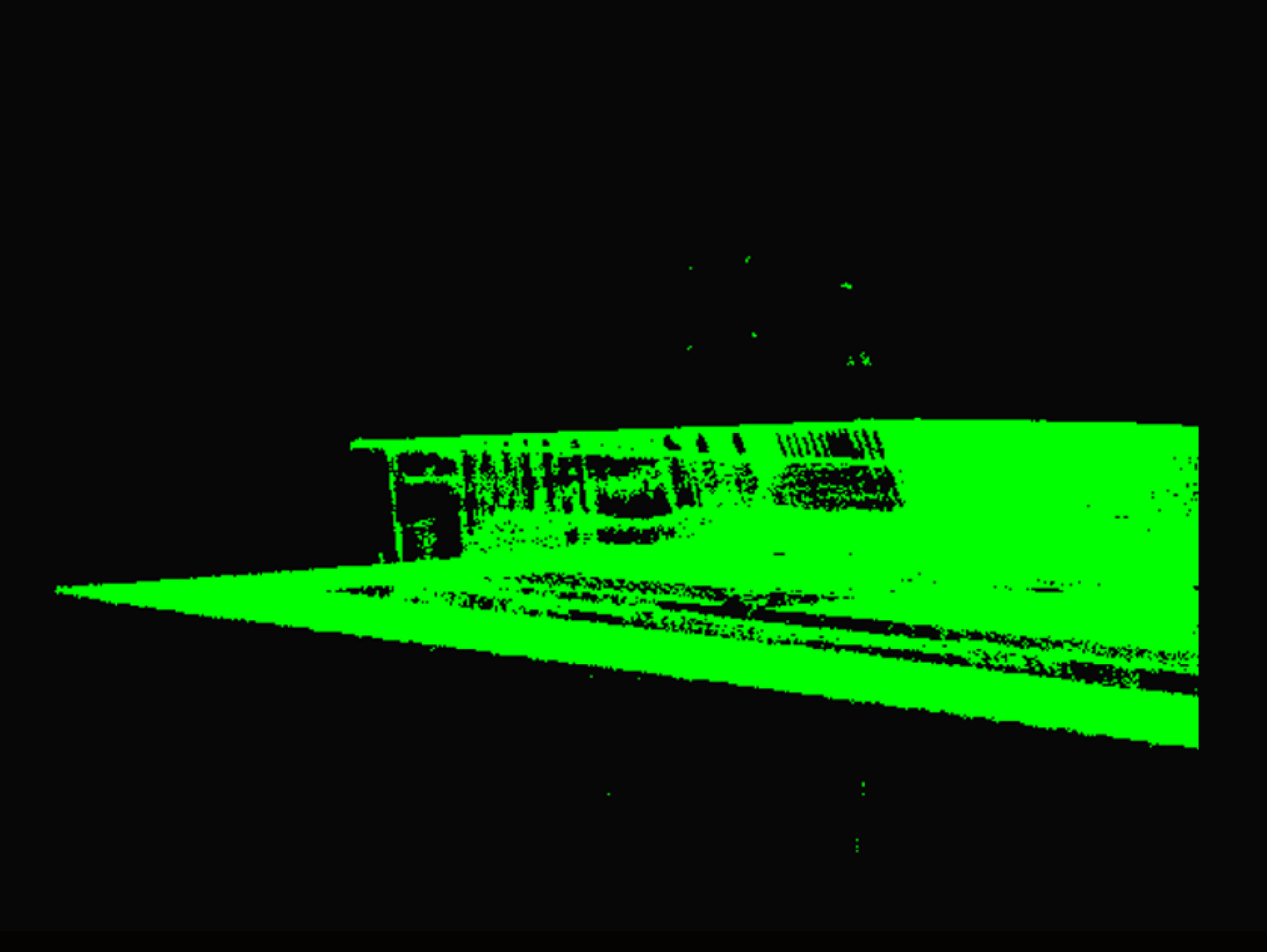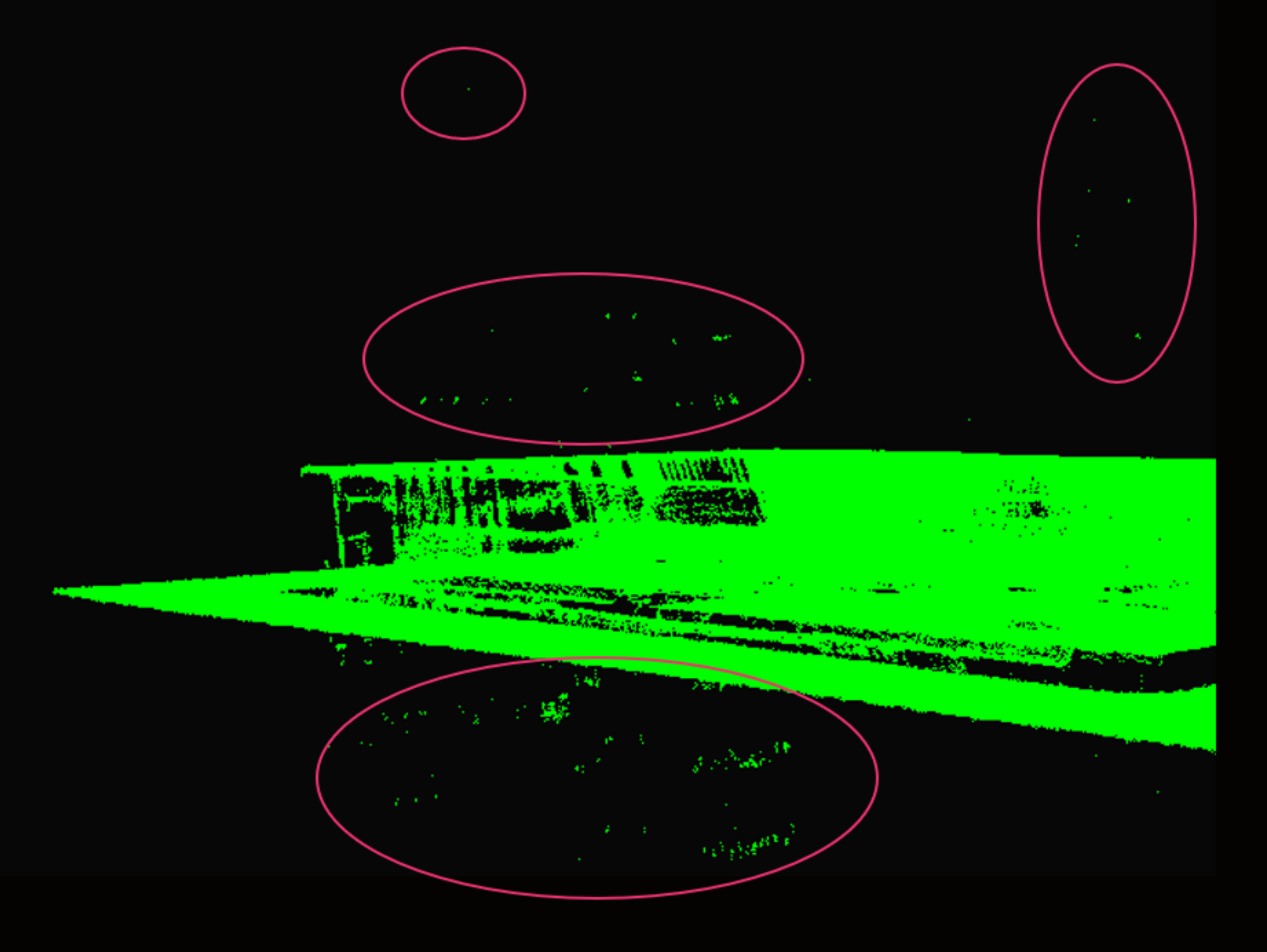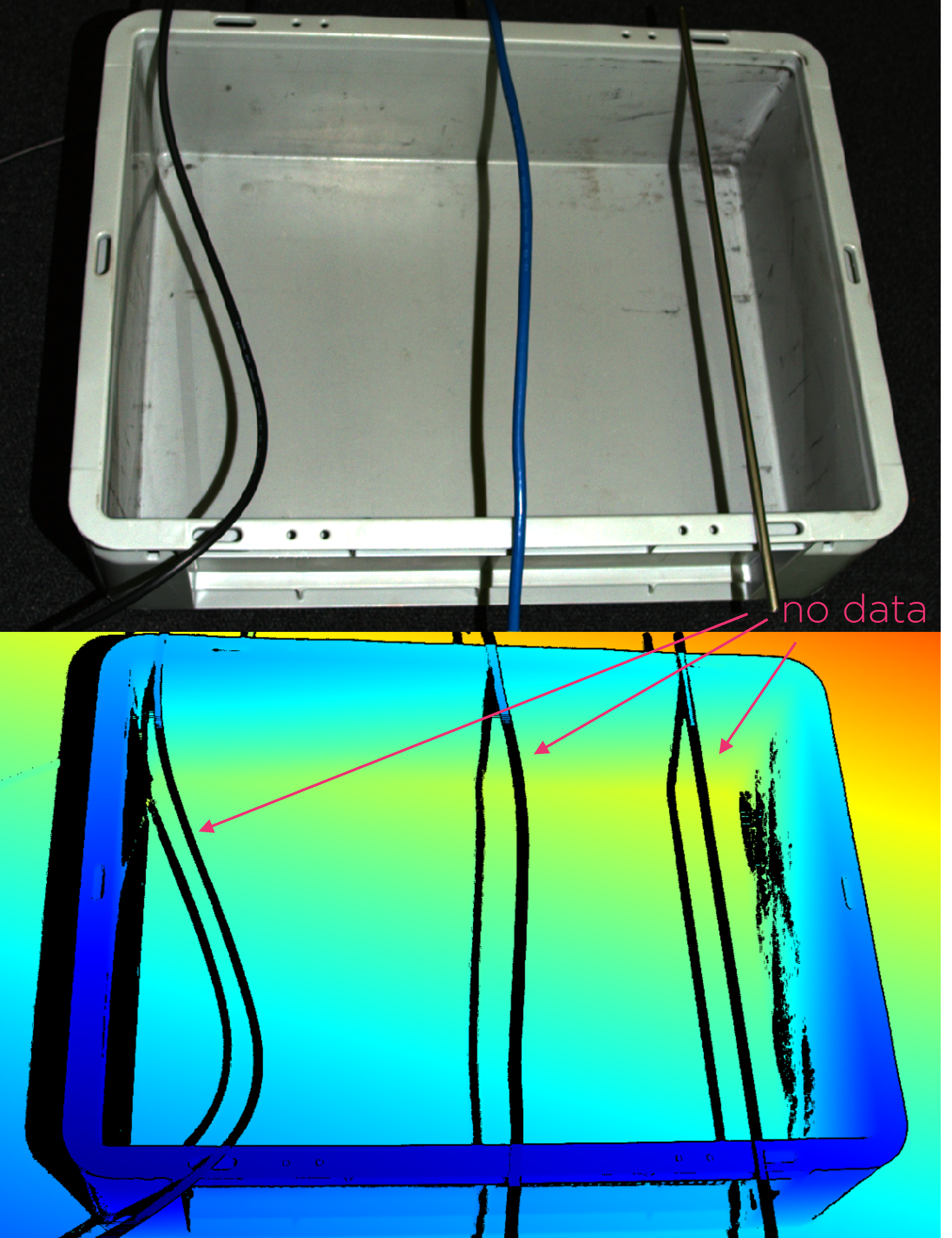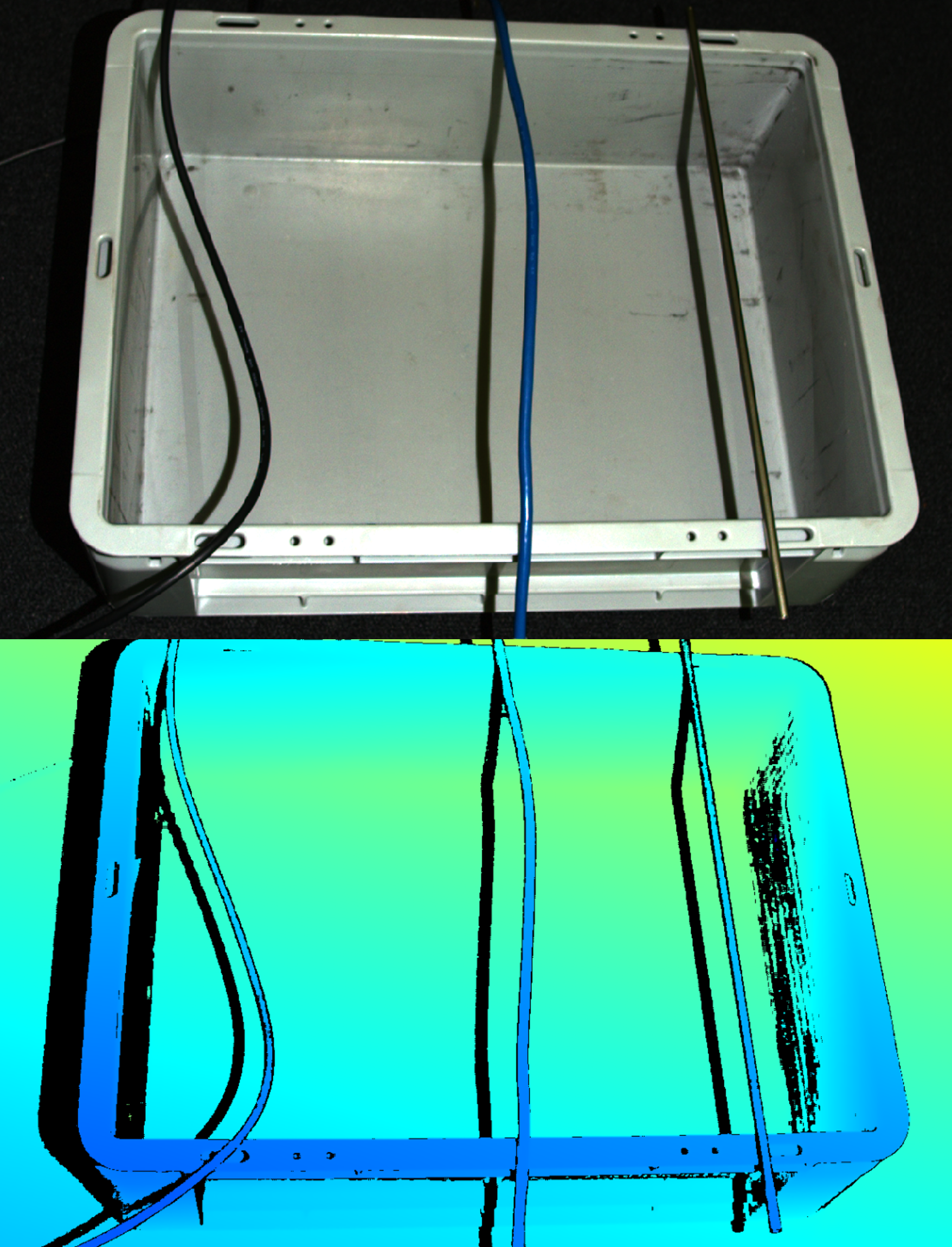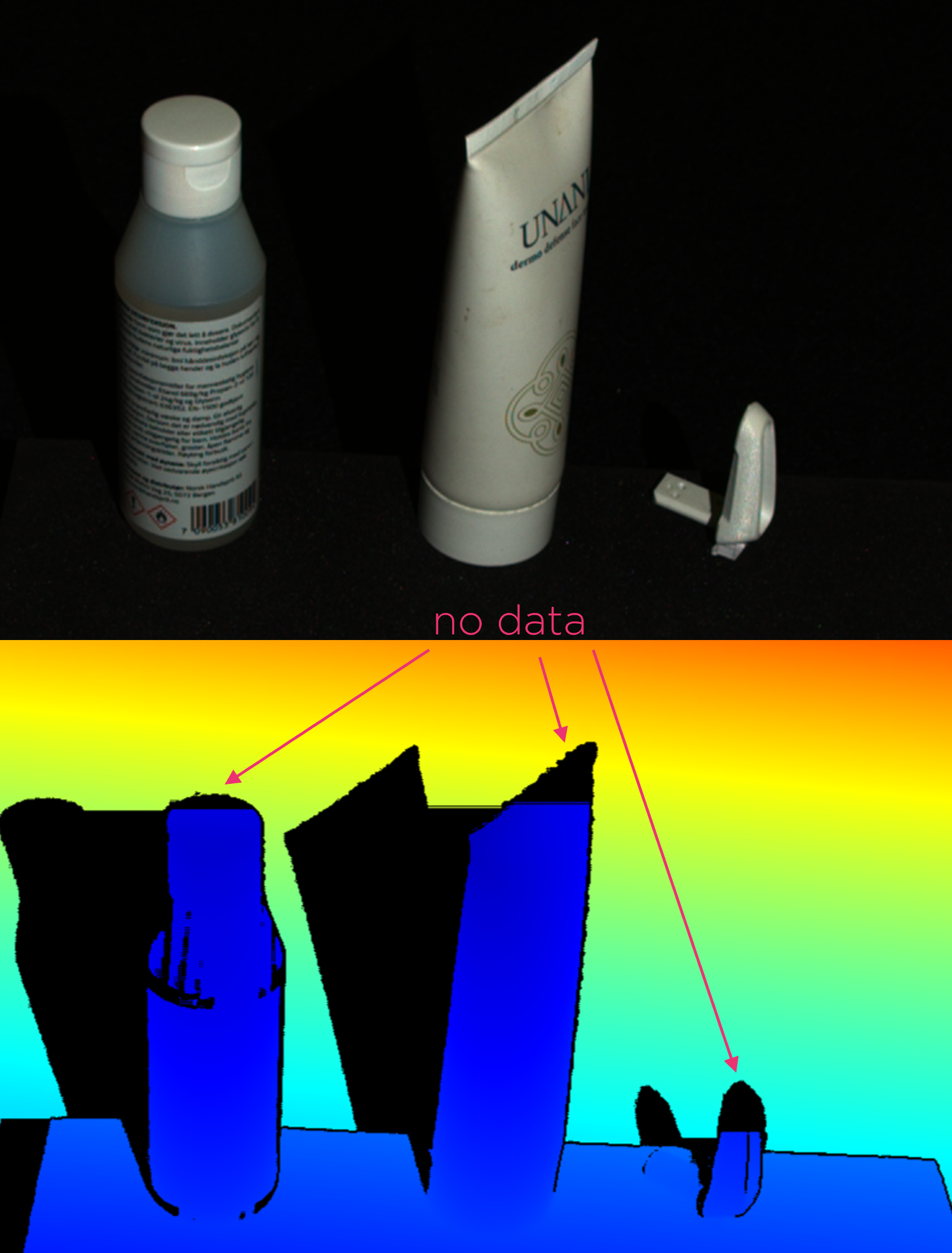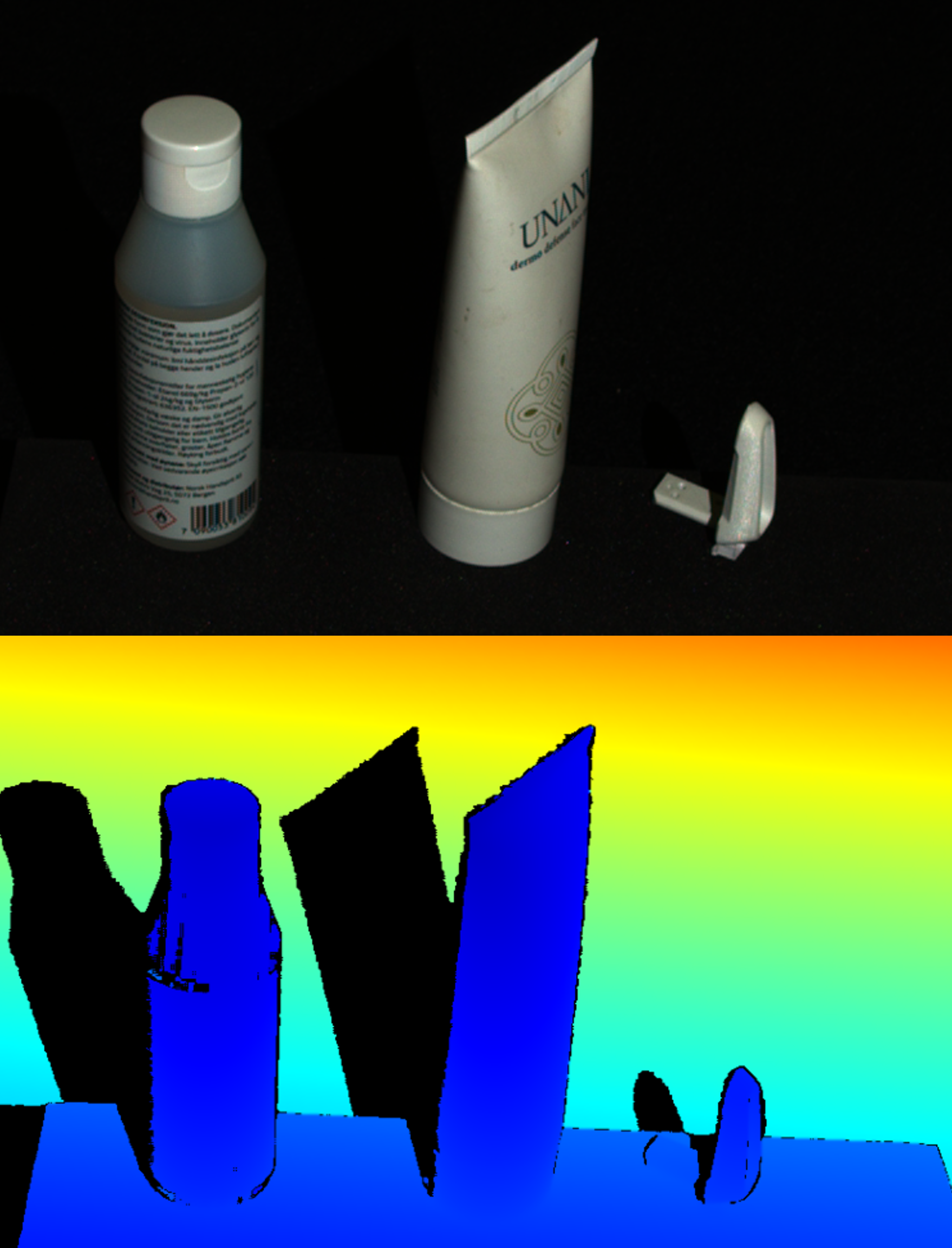Reflection Filter
The Reflection filter removes points that Zivid deem as impacted by reflection and thus erroneous. These are typically seen in the point cloud as “ghost planes” - small regions of points floating mid-air that shouldn’t be there.
Zivid knows how the signals it sends out from the projector should look like. For this reason it is possible to assess whether or not the data that is read back by the camera makes sense. The reflection filter, therefore, attempts to discard pixels that are deemed to be tampered with as a result of one of the following:
Interreflections
Excessive movements in the scene
Alternating alien light sources
For example a second Zivid 3D camera that projects onto the same scene at the same time.
The following values should be used:
Value |
Condition |
|
If you know that your scene is not reflective, and you want to optimize acquisition time. |
|
Turn on if you have issues detecting parts that are reflective or are inside a reflective bin. |
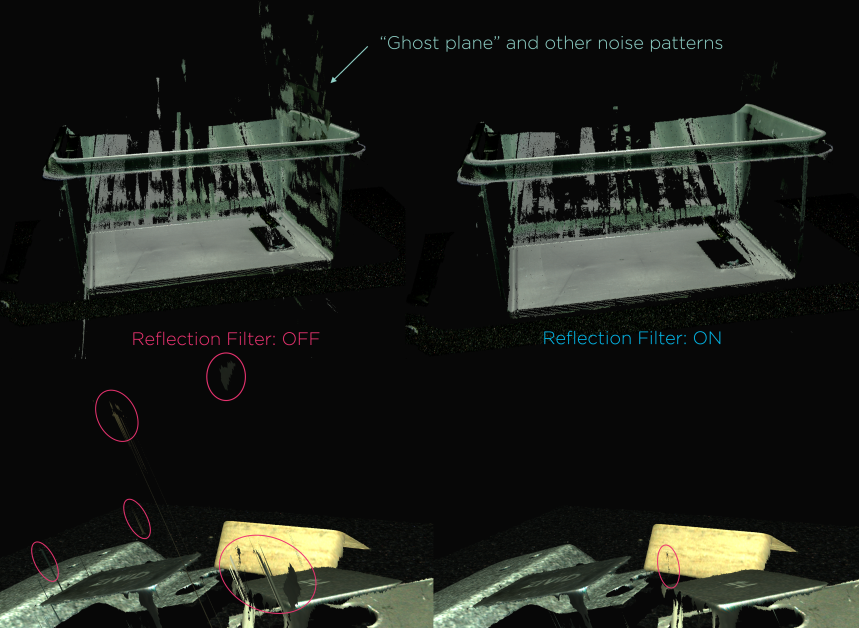
The Reflection filter has two modes: Global (default) and Local. These modes have different benefits and downsides, depending on the used Vision engine.
Mode |
Pros |
|
|
|
|
The images below highlight the main advantage of Global mode, its higher dynamic range, as can be seen on the coverage on shiny black objects in this scene.
Although Local mode has a reduced dynamic range, this can be compensated for by increasing the exposure time, as demonstrated in the comparison images.
The images below illustrate the benefits of Local mode.
Mode |
Pros |
|
|
|
|
The images below highlight the main advantages of Global mode: better data on object sides and edges, and fewer outliers.
The floating points (outliers) that Local mode cannot remove are typically removed by the Cluster Filter.
The images below illustrate the benefits of Local mode: preserving data on thin and pointy objects.
Reflection filter (Global mode) adds the following processing time per 3D capture:
No additional processing time is added when using the Omni engine.
Version History
SDK |
Changes |
|---|---|
2.16.0 |
Reflection filter mode Local can now be used with the Omni engine. |
2.12.0 |
Stripe Engine removed from experimental. Reflection filter mode Local is now up to 15% faster. |
2.11.0 |
Reflection filter mode Local can now be used with the Stripe engine. |
2.7.0 |
Reflection filter is updated with a new mode called Local. Old mode is renamed to Global. |
1.4.0 |
Reflection filter is improved to remove fewer good points. |













